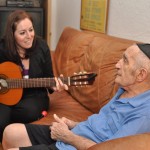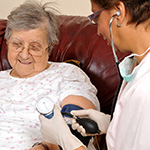PTSD Clusters
According to Irit Felsen, familiarity with the symptoms of PTSD can enhance compassionate care. Signs include, but are not limited to, the following:
Re-experiencing of trauma—It is manifested by unbidden memories, including flashbacks that intrude on awareness in waking hours and in nightmares during sleep, often triggering irrational, as well as exaggerated, reactions to non-threatening stimuli.
Avoidance—Patients may resort to withdrawal from relationships and activities that might otherwise have been sources of solace. Such refusals to participate and be comforted might be perceived as negativistic and can easily frustrate caregivers and family members.
Numbing— Often misunderstood as remoteness or lack of engagement, this emotional constriction reflects depletion due to chronic states of physiological and emotional hyper-arousal.
Hyper-arousal—An important aspect of the 'survivor syndrome,' it manifests as chronic anxiety, depression, guilt and sleep disturbances. It is evidenced by high levels of hyper-vigilance, irritability, exaggerated startle response, explosive reactions and intrusive or micro-managerial behavior patterns.
Download our free Guidebook: Caring for Holocaust Survivors with Sensitivity at the End of Life

This helpful guidebook provides a deeper understanding of end-of-life issues that may manifest in the Holocaust Survivor at the end of life.





